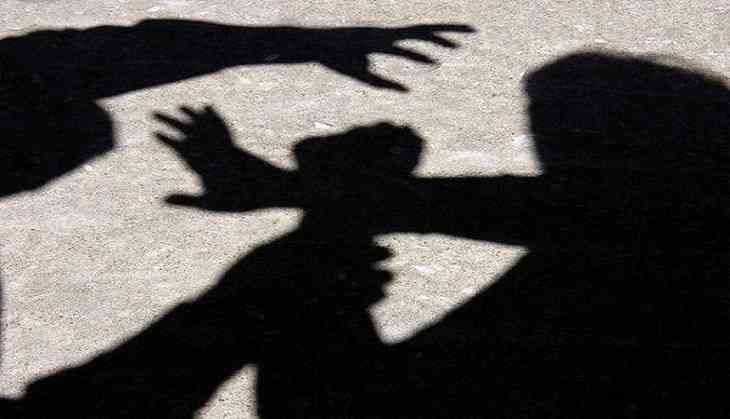Name & shame: Viral FB post names 60 academics of eminent Indian institutions of alleged sexual harassment

Raya Sarkar, who describes herself as “an attorney interested in prisoner's rights, reproductive rights, and anti-caste jurisprudence”, posted an invitation on Facebook to students to name academics who have “sexually harassed/were sexually predatory to them or have seen it first-hand”.
Sarkar, who lives in Davis (California, USA) according to her Facebook information, posted the invitation at 12.25 AM on 24 October and asked others to “PM (personally message) her” with names which she has compiled into list on online. The post has since gone viral with the list having as many as 60 names and 300 shares as of 3 AM on 25 October.
Shockingly, the list includes several prominent academics from some of India’s eminent institutions. Among them are 12 professors from Jadavpur University, nine from Delhi University, three from Film and Television Institute (FTII), three from Satyajit Ray Film and Television Institute (SRFTI) and two from Jawaharlal Nehru University (JNU).
Besides others professors working at Oxford University, Institute of Rural Management Anand (IRMA), Gujarat, Atomic Energy Higher Secondary Central School, Kudankulam, TERI University, University of Cambridge, Scottish Church College, Kolkata, St. Xavier's College, Kolkata, University of California, Santa Cruz, Ambedkar University, Delhi, EFLU - Hyderabad, Christ University, Presidency University, Calcutta, TISS Tuljapur, National Institute of Fashion Technology, Delhi, St. John's Medical College, Bangalore, NLSIU Bangalore have also been named.
Sarkar has been updating the list as more names come in.
In a comment to her post, Sarkar said –
“The victims are hesitant to file complaints knowing that the criminal justice system torments victims. Some are unwilling to even disclose their names as the academic community will treat them as a pariah. This is how power assemblages work. What can be done however is to warn future students. If any victim wants to file a complaint to the police I would be happy to help, as would others.”
In another comment, she wrote –
“Most if not all are first-person accounts of people who were molested/sexually harassed by the people who have been put on this list. Rest are friend (s) of the victims (who) have chosen to specifically contact me as they fear their identity being disclosed. In fact, since there is a disturbing amount of rape apologia and victim blaming, the victims have gone out of their way to show me screenshots of them being harassed and abused by the people they have named.”
“Ideally I wanted to mention the victims but only 2-3 of them want their names known (older victims, interestingly),” she added.
Sarkar’s Facebook post comes shortly after an article by C Christine Fair appeared on the Huffington Post. The19 October article (HimToo: A Reckoning) spoke of the harassment she faced throughout her life including glaring instances at well-known academic institutions. In the article, Fair levelled allegations against academics including renowned historian Dipesh Chakrabarty. The article is now available on her blog.
While the post garnered many supporters, many women academics including ones from institutions named in the list, expressed concern over the anonymity of the post. An article titled Statement by feminists on Facebook campaign to 'Name and Shame on Kafila.online, signed by women activists such as Ayesha Kidwai, Kavita Krishnan, Nivedita Menon, Vrinda Grover, Brinda Bose among others, said –
“As feminists, we have been part of a long struggle to make visible sexual harassment at the workplace, and have worked with the movement to put in place systems of transparent and just procedures of accountability. We are dismayed by the initiative on Facebook, in which men are being listed and named as sexual harassers with no context or explanation. One or two names of men who have been already found guilty of sexual harassment by due process are placed on par with unsubstantiated accusations. It worries us that anybody can be named anonymously, with lack of answerability. Where there are genuine complaints, there are institutions and procedures, which we should utilize. We too know the process is harsh and often tilted against the complainant. We remain committed to strengthening these processes. At the same time, abiding by the principles of natural justice, we remain committed to due process, which is fair and just. This manner of naming can delegitimise the long struggle against sexual harassment, and make our task as feminists more difficult. We appeal to those who are behind this initiative to withdraw it, and if they wish to pursue complaints, to follow due process, and to be assured that they will be supported by the larger feminist community in their fight for justice.”
Though almost completely anonymous, and therefore unverifiable, the fact that as many as 60 names have been mentioned by women students does highlight the magnitude of the issue of sexual harassment in our academic institutions.
Steps must be taken to ensure the set-up and subsequent fair proceedings of an anti-sexual harassment mechanism in institutions across the country. Women and men need to feel safe to report conducts of sexual harassment against faculty members and others without the fear of injustice systems, interference, bias, or victim-shaming.
Sarkar’s post also comes in the wake of the Harvey Weinstein controversy in Hollywood in which more than 50 actresses have so far come forward to narrate cases of sexual harassment, and in some cases, rape, by him.
Edited by Jhinuk Sen


